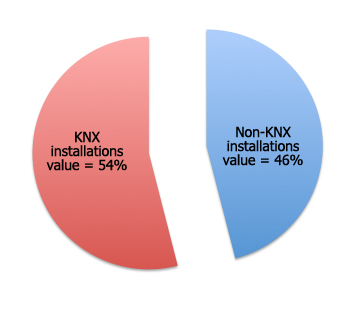
 By Piero Russo & Oleksiy Danilin, BSRIA.
By Piero Russo & Oleksiy Danilin, BSRIA.
In this series of reports, we highlight key findings of our European Smart Home Market Study which was carried out during 2011 with a view to anticipating how the market will develop over the coming years. We undertook the research by interviewing and exchanging information with the top players and stakeholders around Europe, and the resultant study is the one of the first to comprehensively analyse all of the available knowledge on smart home technologies and generate reliable market data.
The project includes nine in-depth reports on different European markets: Germany, France, UK, Netherlands, Belgium, Norway, Sweden, Denmark, and Poland. In this issue, we will summarise the results for Poland.

Size of Smart Home Market in Poland
The overall Polish market for smart home systems amounted to 12.5 million Euros in 2011, of which 4 million Euros were generated by systems integration. The industry anticipated a substantial growth in local demand during the last decade, but although the expected leaps and bounds were not achieved, the market was growing steadily: in 2011 the smart home product value increased by 25%.
KNX Market in Poland
According to our estimates, the share of KNX solutions had already reached 54% of the total market value. For such a developing market as Poland, this is a great success. All major KNX brands, such as ABB, Schneider Electric, GIRA, Jung, etc., are available in the Polish market and have a significant influence.

KNX solutions are however, still the most expensive ones, which is a main reason why their prospects are limited. This is especially relevant with regard to the residential sector, since the purchasing power of Polish households is significantly below that in Western European countries.
Conclusion
Although it is still too early to consider smart homes in Poland as a massive market, the popularity of home automation is rapidly increasing. So far, KNX installations have been almost totally concentrated in the segment of luxury private properties, so the success of KNX as an open protocol in the wider market will be largely dependent on further decreases in prices and the awareness of local installers about its advantages.
Piero Russo is a Senior Market Research Consultant, and Oleksiy Danilin is an International Research Consultant for BSRIA, a specialist consultancy that offers worldwide market intelligence across a broad range of building infrastructure products and services.












